World
Out in the World: LGBTQ news from Europe and Asia
Thai lawmakers approve marriage equality bill

PORTUGAL
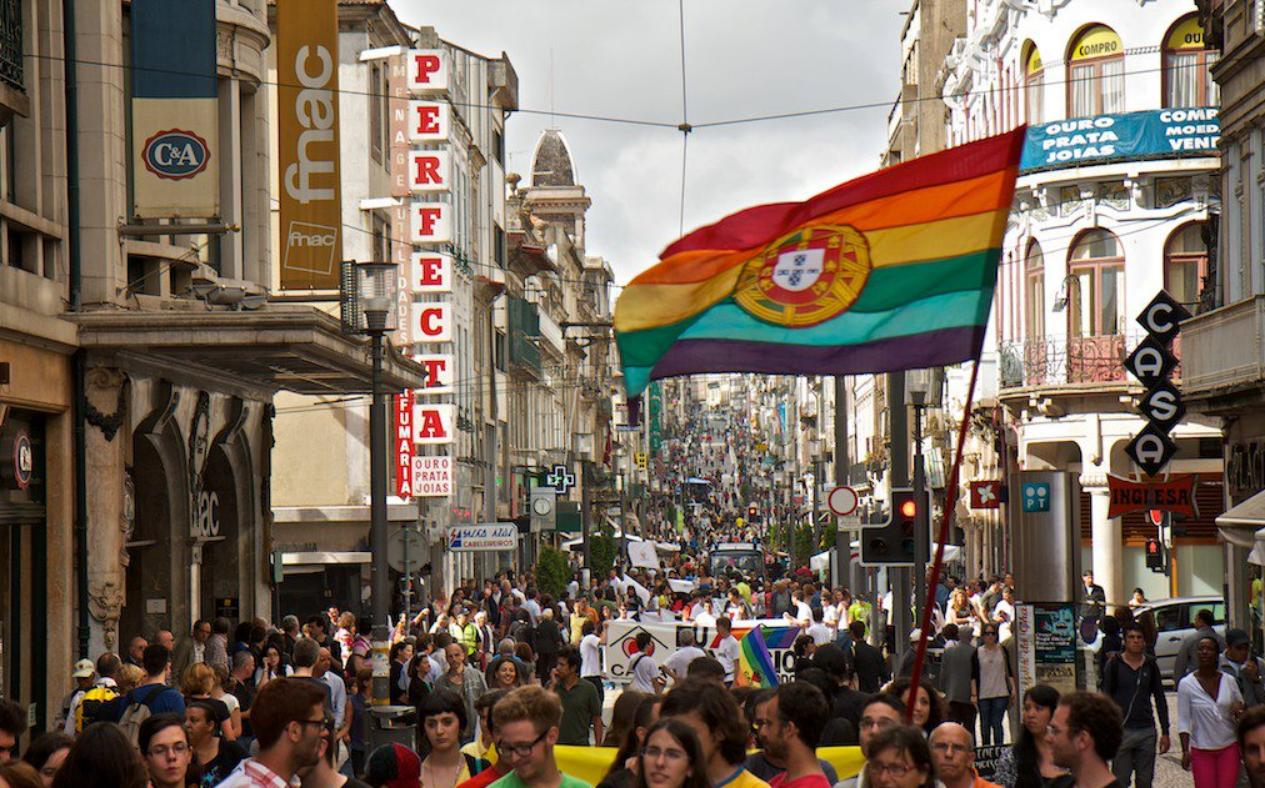
The Portuguese Parliament passed the final draft of a bill this past week, which was first introduced last May by the Bloco de Esquerda, the populist democratic socialist political party, that outlaws “any practice aimed at the forced conversion of sexual orientation, identity or gender expression.”
Joined in a coalition with the Livre and PAN parties, the new law incorporates into the country’s penal code that “whoever subjects another person to this type of treatment, including the performance or promotion of medical-surgical procedures, practices with pharmacological, psychotherapeutic or other psychological or behavioral resources, will be punished with a prison sentence of up to three years or a fine.”
During the parliamentary debate in the Constitutional Affairs, Rights, Freedoms and Guarantees, the College of Physicians Committee issued a statement in which it criticized this type of therapy for “not having proven its effectiveness nor respecting the ethical and deontological standards of medical practice.” The organization highlighted that “diversity in sexual orientation and gender identity represents normal expressions, which cannot be considered diseases.”
The law now heads to President Marcelo Rebelo de Sousa for his signature.
Passage of the law by Parliament brings Portugal into alignment with other European Union nations. Malta was the first European country to ban the practice followed by Germany, Greece, Albania, France and Belgium.
SPAIN
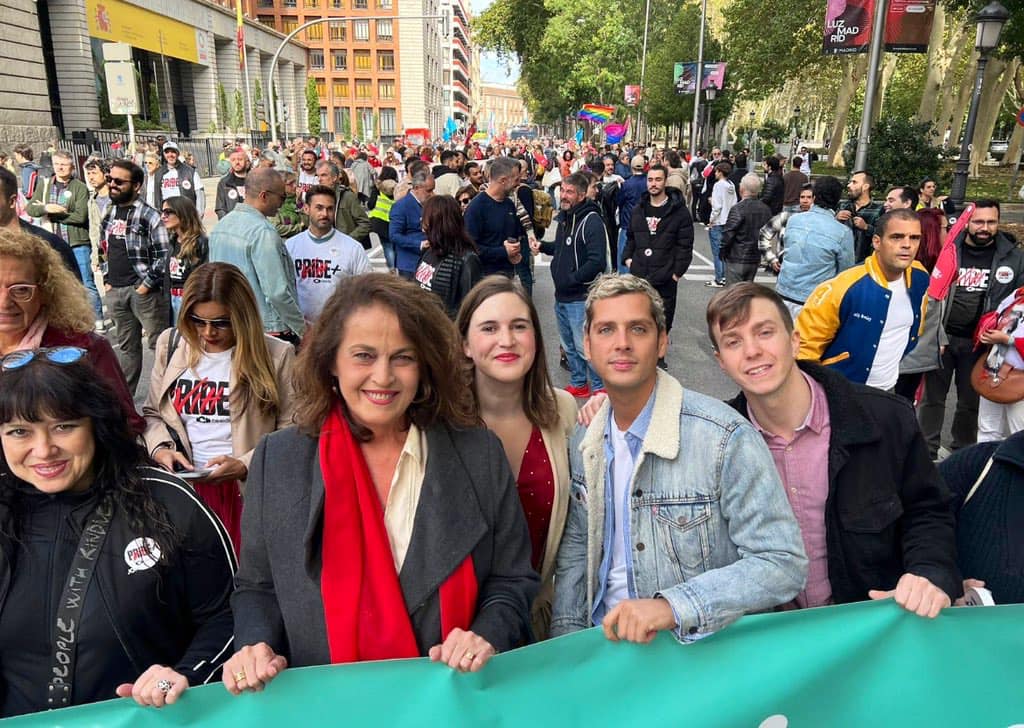
The Assembly of Madrid, the unicameral autonomous legislature which governs the region around Spain’s capital city, voted this past week to rollback protections for transgender people. The measure was passed by the conservative People’s Party.
The measure also contained a proviso that guidelines preventing harassment of LGBTQ students in schools is eliminated, all content aimed at showing the LGBTQ community and the training of teachers in this matter are removed from the study plans.
The bill amended a regional trans rights law and an LGBTQ rights law, both of which were passed in 2016. The decision makes Madrid the first Spanish region to roll back such legislation. The anti-trans bill stripped the previous law of its fundamental pillar: The concept of “gender self-determination” or “freely expressed gender identification.”
The PP’s new law replaced the terms “trans people” and “gender identity” with “transsexuals” and “transsexuality,” terms which activists say are demeaning.
The Standard, a British news outlet, reported the move by the PP party sparked outcry from the opposition in Madrid and LGBTQ activists.
Carla Antonelli, an assembly member for the left-wing Mas Madrid party who is trans, wore red gloves symbolizing bloodied hands during the raucous debate preceding the vote. She called the bill an “abomination” and compared it to the actions of Nazi SS doctor Josef Mengele, who “also spoke of science to exterminate Jews and LGTBQ people.”
“When you press that button to vote for this infamy … you will all have blood on your hands,” Antonelli said adding: “This is terrorism towards trans people. You won’t be able to wash your dirty conscience because we will remind you of it every day.”
The Standard also noted that in December 2022, Spain passed a nationwide bill allowing trans people aged 14 and over to change their legal gender without the need for psychological or other medical evaluation, though those aged 14-16 would still need parental or guardians’ agreement.
Fourteen other Spanish regions out of the country’s 17 have laws for the protection of trans rights, LGBTQ rights, or both, on the books.
GREECE

The spokesperson for Greece’s center-right government announced Dec. 21 that legislation legalizing same-sex marriage will be brought to the Hellenic Parliament before its current term expires in 2027.
Pavlos Marinakis noted this action would take place despite facing staunch opposition from the country’s influential Orthodox Church, which the church’s governing Holy Synod had submitted late on Dec. 20, expressing strong opposition to legalizing same-sex marriage.
The Greek City Times reported that the church’s stance drew significant attention from the Greek news media, sparking a lively debate within the country. Opinion polls indicate that Greeks are evenly divided on the issue of same-sex marriage but generally oppose granting full parental rights to gay couples.
“The position of the Church of Greece remains that children have an innate need and therefore a right to grow up with a male father and a female mother. No amount of social modernization and no amount of political correctness can bypass (this),” the church document said.
“Children are not companion pets for those who wish to feel like a guardian, and are not ‘accessories’ to formalize or make same-sex cohabitation socially acceptable,” it added.
The Associated Press noted that Greece’s left-wing opposition leader, Stefanos Kasselakis, married his male partner in New York in October, several weeks after winning a party leadership election.
Greece legalized same-sex civil partnerships in 2015.
HUNGARY
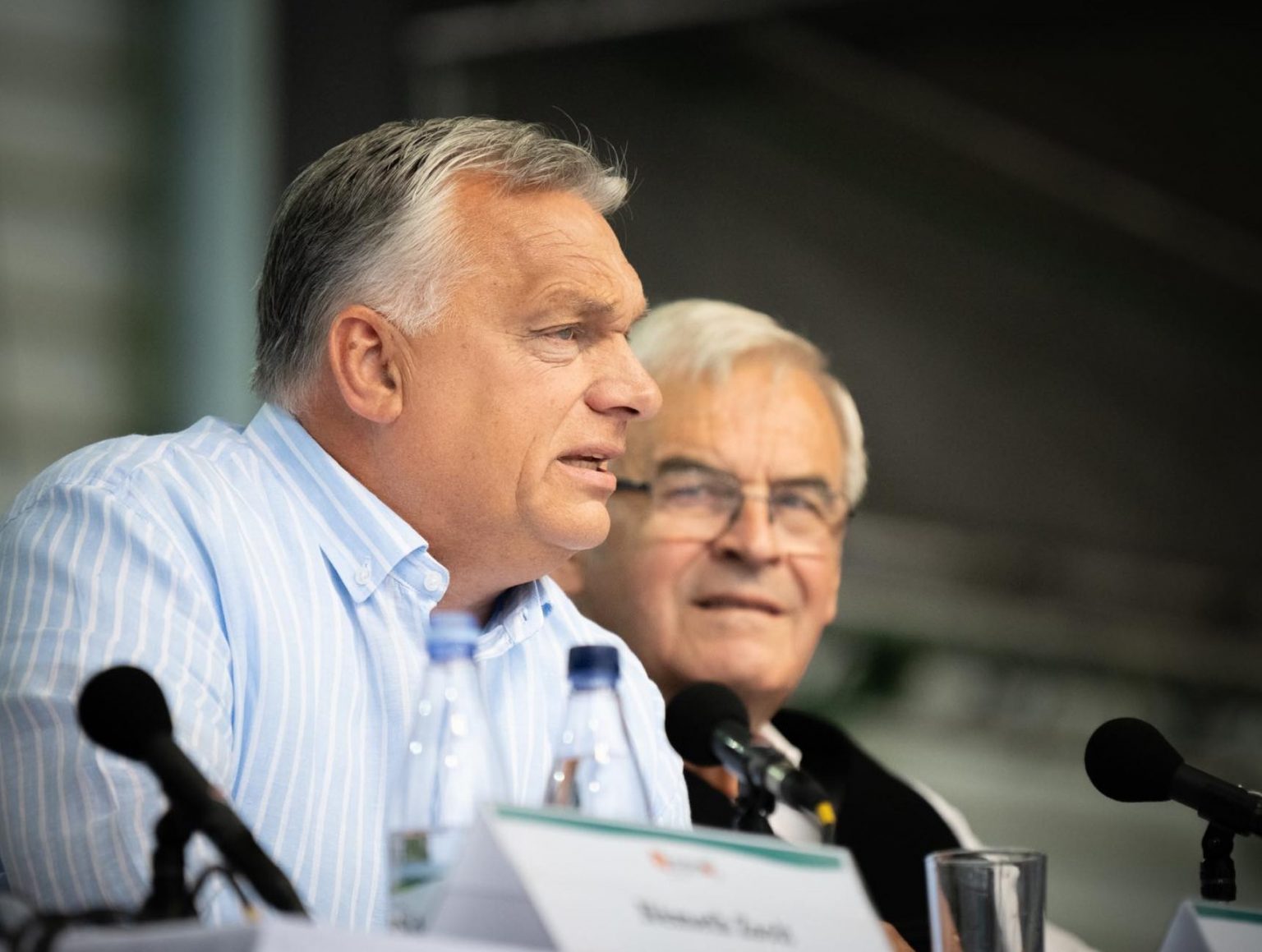
In a press conference on Dec. 21, Hungarian Prime Minister Viktor Orbán accused the European Commission of blackmailing his country over its anti-LGBTQ laws and other rule-of-law concerns.
“In our view, Hungary fulfils all the qualities of the rule of law, and when the European Commission has specific needs, we implement everything from them, and we are also cooperative,” Orbán told reporters. “You cannot blame me for doing everything I can to promote Hungary’s interests in such a blackmailed situation.”
Orbán has been embroiled in a long-standing dispute with the governing body of the EU, the European Commission, which has frozen billions of funds intended for Hungary over concerns about human rights and the rule of law in the country.
The government of the conservative ruling party of the prime minister has been feuding with the EU since passage of Hungary’s anti-LGBTQ education law in June 2021.
Orbán, who has publicly proclaimed that he is a “defender of traditional family Catholic values,” has been criticised by international human rights groups as discriminating against LGBTQ+ people with this law which European Commission President Ursula von der Leyen called a “disgrace.”
The European Commission, the ruling body of the EU, referred Hungary to the EU Court of Justice over the anti-LGBT law in mid-2022. The commission has said it considers that the law violates the EU’s internal market rules, the fundamental rights of individuals and EU values.
UNITED KINGDOM

A Manchester Crown jury found a pair of teenagers guilty in the murder of Brianna Ghey, a 16 year old trans girl and TikTok creator who was brutally stabbed to death in a park in Culcheth, Warrington, in February 2023.
The jury unanimously ruled the teens, known only as Girl X and Boy Y, guilty after deliberating for over four hours. The judge said she would have to impose a life sentence, with the official sentencing to take place next year.
Ghey, who lived in Birchwood, Cheshire, and was a junior at Birchwood Community High School had been bullied for her trans identity according to comments left on social media posts by friends and fellow students.
Her friends alleged she had been bullied and gang beaten at Birchwood Community High School for several years over the “simple reason of being trans.”
The gruesome details came out during the trial in Manchester, where the jury heard testimony that the pair, a male and a female, both 16 had a “thirst for killing” and were fascinated by torture.
PinkNewsUK reported a “murder plan” was later discovered in the female’s bedroom, and investigators discovered that they had put together a “kill list” made up of five children before they settled on making Ghey their first target. The jury also heard that male had referred to Ghey as “it” rather than “she,” which he said was a “joke” between himself and his female accomplice.
The Judge, Amanda Louise Yip, noted that she would have to impose a life sentence for both defendants. She explained that she will now have to decide what the “minimum amount of time you will be required to serve before you might be considered for release” should be.
Yip, after the jury’s verdict was delivered, announced there was a public interest in lifting restrictions on reporting the teenagers’ names, which because of their ages had not been disclosed. However she said the welfare of the defendants could be put at risk if supports were not put in place, BBC News reported.
The judge acknowledged that naming Ghey’s murderers would “cause distress to their families,” and she noted that they had already faced threats and harassment due to their children’s actions.
“I believe the appropriate balance can be achieved by directing that the order may be lifted but placing a [delay] upon it until the date of sentencing,” she said.
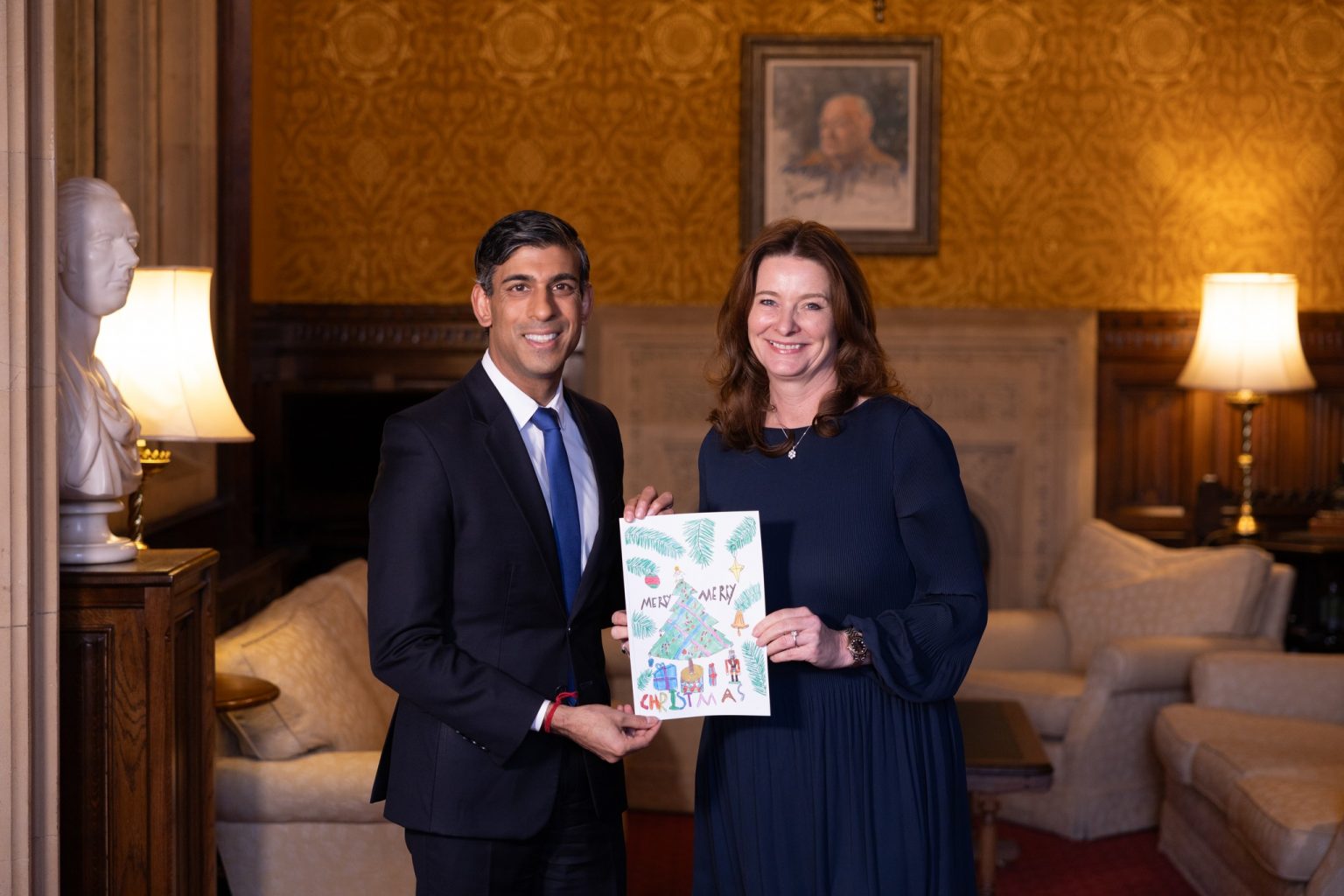
The Tory government’s Department for Education released a set of much-feared school policies and guidance concerning transgender students on Dec. 18. LGBTQ advocacy groups responded, describing the government’s draft guidance for trans schoolchildren proposals as “chilling” and “actively dangerous.”
PinkNewsUK reported the long-delayed guidance on how to support trans and non-binary pupils at school lays out steps to approach a range of issues, from social transition, to changing names and pronouns, to access to single-sex spaces.
The non-statutory guidance explicitly states that primary school-aged children “should not have different pronouns to their sex-based pronouns used about them,” and that if a child wishes to socially transition, parents should be engaged.
The plan further outlined policies that would forcibly out trans youth to their parents, ban pronouns for all primary school trans youth, prevent trans youth from using restrooms that align with their gender identity and could even lead to forced haircuts and clothing choices.
Journalist Erin Reed noted the policies even allow schools to enforce uniform policies based on a student’s assigned sex at birth, explicitly stating that trans students should follow the “hairstyle rules” of their assigned sex at birth. This would lead to trans girls being forced, for instance, to cut their hair short. You can see the policies here:
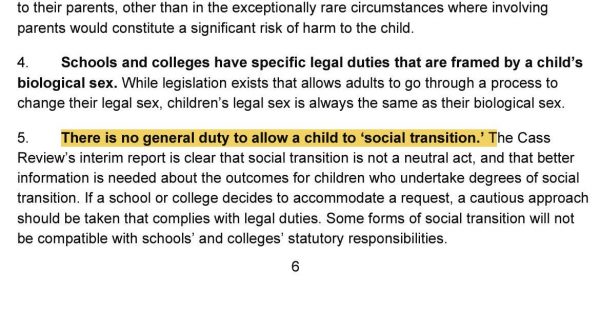
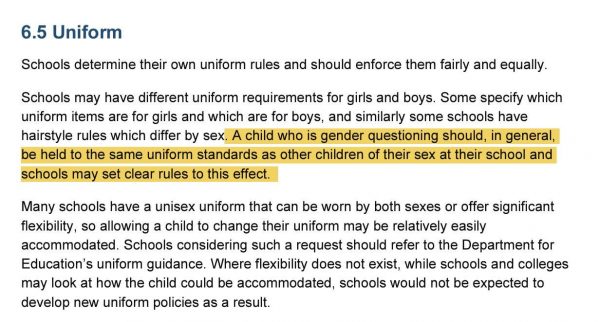
Social transition bans are, of course, seen and being promoted in other countries as well. New Zealand’s “Resist Gender Education” calls for the government to ban all social transition in schools, “even with parental consent.” In a statement to PinkNewsUK, Mermaids, a group that advocates for trans youth, added that the government’s guidance is “out-of-touch” and “absurd”.
“It is difficult to understand how aspects of this draft guidance, including automatically excluding trans pupils from facilities, sport bans or allowing students to be misgendered are compatible with existing equalities law,” the charity said.
“The overwhelming majority of teachers and parents believe trans pupils should be safe at school and will disregard these discriminatory guidelines, which will be non-compulsory.”
NEW ZEALAND
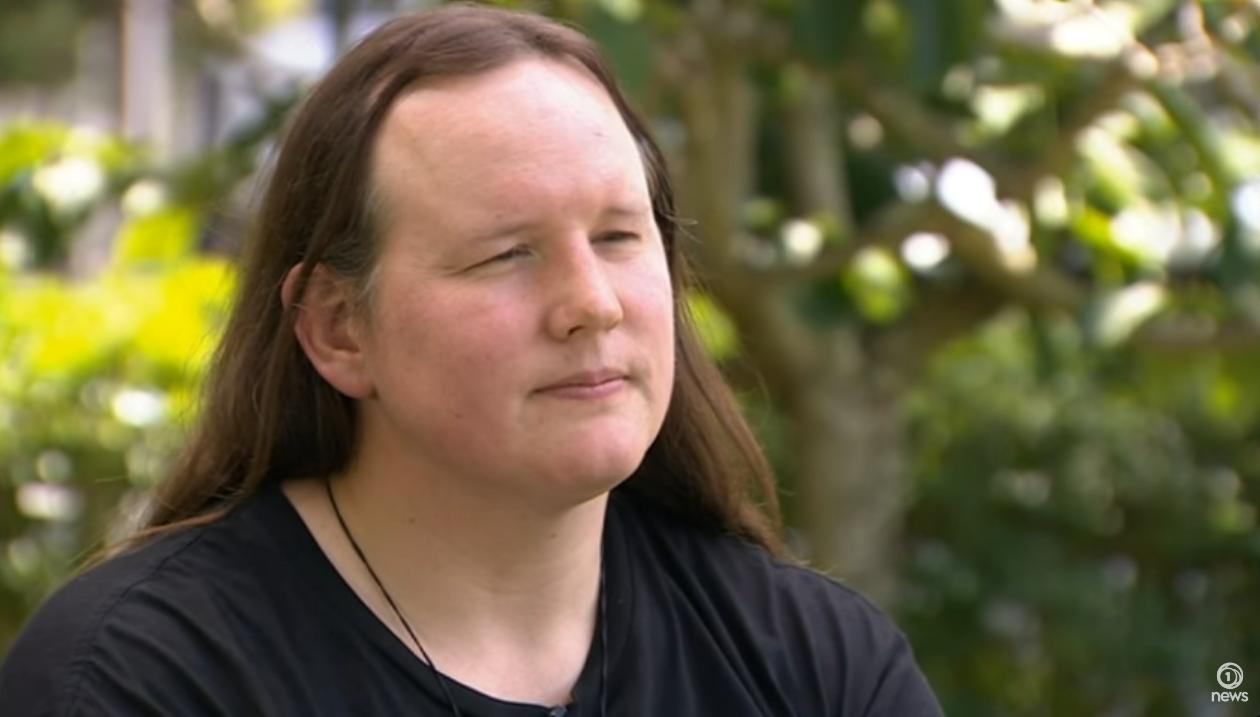
A new government policy will yank millions of dollars of public funding from New Zealand sports organizations as the government of newly elected Prime Minister Christopher Luxon sets out its agenda to “ensure publicly funded sporting bodies support fair competition that is not compromised by rules relating to gender.”
Andy Foster, a spokesperson for the populist and nationalist political New Zealand First party says it is “about fairness and safety in sport for women,” the NZ Herald reported.
Trans athlete and two-time national champion mountain biker Kate Weatherly told the Herald she fears it will lead to athletes being forced into men’s competitions or sidelined completely. Given the minimal number of trans women competing in amateur sports, Weatherly fears it could lead to their exclusion from the grassroots arena, she added.
Sport and Recreation Minister Chris Bishop was uncomfortable discussing the coalition agreement. “New Zealand First are very keen to make sure we have an inclusive environment and atmosphere for everybody — and that rules relating to gender don’t get in the way of that,” Bishop told the Herald.
“It is a tricky one, a thorny issue. There’s strong views on both sides of the debate. I’ll work through that with the relevant sporting bodies. Ultimately it’s got to go over to sporting bodies to make sure that we have fair competition.”
THAILAND
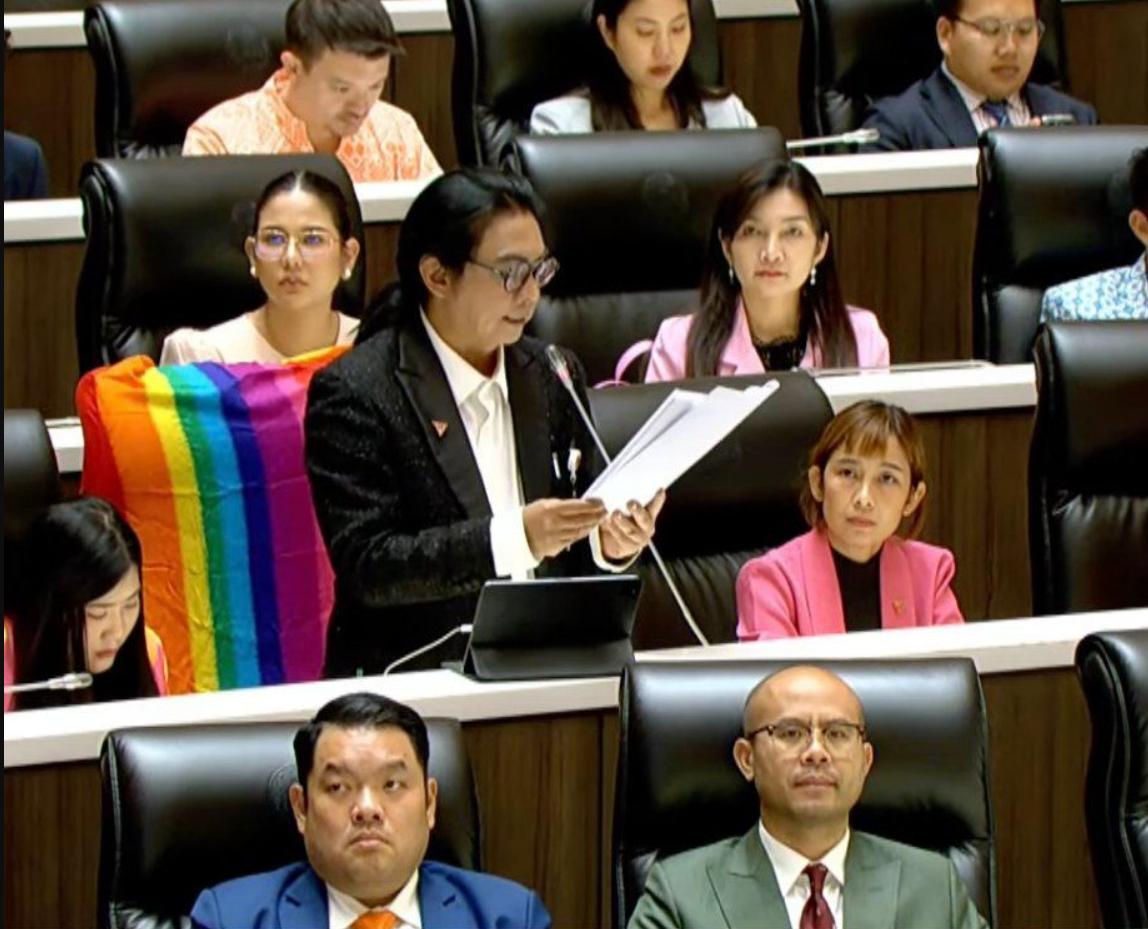
On Dec. 21, the Thai House of Representatives passed four draft bills regarding legalizing same-sex marriages in this Southeast Asia nation which has one of the more open cultures in that part of the world in acceptance of LGBTQ people.
Amnesty International Thailand Researcher Chanatip Tatiyakaroonwong noted in a statement:
“By potentially becoming the third place in Asia to legalize same-sex marriage, Thailand has the opportunity to set a bold example for LGBTI people’s rights in this region. These bills and the debates in Parliament over them represent a moment of hope for LGBTI people’s rights in Asia, even though there is still much to be done for their full protection.
The final version of this draft legislation must not water down calls for the full spectrum of the right to family life, including access to adoption and inheritance for LGBTI couples, as well as the legal recognition of same-sex couples as ‘spouses’ on an equal footing with different-sex couples.
As LGBTI activists have systematically demonstrated, efforts to broaden rights for LGBTI people don’t go nearly far enough to ensure equal rights guaranteed under international law. These bills set Thailand on a new path that could right those wrongs.
If legislation passes on first reading, Thailand’s Parliament should build on the momentum and prioritize the immediate adoption of this law, taking note of the celebratory reaction as a sign that the country is hungry for equality. Lawmakers in Parliament should continue to demonstrate to Thailand’s LGBTI community that they are listening and valuing their voices, wishes and perspectives.
Guaranteeing full marriage equality in law not only sends a message to the rest of the region but to the rest of the world, at a time when countries all over the globe are changing outdated laws and building more inclusive societies.”
Reuters reported that Deputy Prime Minister Somsak Thepsuthin told Parliament, referring to the government’s draft bill.
“In principle, this draft law is for the amendment of some provisions in the civic codes to open the way for lovers, regardless of their gender, to engage and get married. This will provide rights, responsibilities and family status as equal to the marriage between a man and a woman presently in all aspects,” he said.
Somsak said a government survey conducted between Oct. 31-Nov. 14 showed 96.6 percent public support for the draft bill.
Additional reporting from Esquerda News Lisbon, The Standard UK, Greek City Times, The Associated Press, Agence France-Presse, 24.HU News, PinkNewsUK, The BBC, Erin Reed, The New Zealand Herald and Reuters.
India
Activists push for better counting of transgender Indians in 2026 Census
2011 count noted 488,000 trans people in country

India is preparing to conduct a nationwide Census in April, the first since 2011.
Interim projections based on the previous Census placed India ahead of China as the world’s most populous country. A Technical Group on Population Projections projection in July 2020, chaired by the Registrar General of India, estimated the country’s population in 2023 was 1.388 billion. Transgender Indians are now raising concerns about the data collectors and their sensitization.
Activists have raised concerns about whether data collectors are adequately sensitive to the community ahead of the Census. Government training material emphasizes household engagement, data privacy and sensitivity while asking personal questions, but publicly available flyers do not outline specific guidance or training related to recording trans identity during enumeration.
Concerns around the counting of trans people in India are not new.
The 2011 Census recorded around 488,000 trans people, a figure activists and researchers have described as a likely undercount due to stigma, misclassification, and a reluctance to self-identify. Subsequent surveys and field reports have pointed to inconsistencies in how gender identity is recorded and the absence of uniform sensitivity among Census data collectors. Rights groups and policy researchers have also warned that gaps in official data affect access to welfare schemes, legal recognition, and targeted public policy, making accurate counting central to future Census exercises.
A decade after the 2011 Census formally recorded trans people as a distinct category, multiple studies have continued to document entrenched socio-economic disparities. Research has pointed to lower literacy rates, limited workforce participation and barriers to healthcare access within the community.
A National Human Rights Commission-supported study cited in subsequent reporting found a significant proportion of trans respondents reported employment discrimination, underscoring the gap between formal recognition and lived economic inclusion.
Educational exclusion has remained a persistent concern within the trans community. Studies have documented higher dropout rates, lower literacy levels and barriers to continuing education, often linked to stigma, discrimination and limited institutional support. Policy researchers note that despite formal recognition in official data after 2011, targeted interventions addressing school retention and access for trans people have remained uneven.
Access to housing schemes has reflected similar gaps.
The Washington Blade in December reported only a small number of trans people have benefited from India’s flagship low-income housing program, despite its nationwide rollout and eligibility provisions. The findings underscored continuing barriers to inclusion in welfare delivery systems.
The Social Justice and Empowerment Ministry and the Office of the Registrar General and Census Commissioner did not respond to the Blade’s multiple requests for comment regarding sensitization measures for Census data collectors and the recording of trans identity in the upcoming Census.
Karnataka state in southern India last September conducted its first statewide baseline survey of gender minorities. The Department of Women and Child Development, in collaboration with the Karnataka State Women’s Development Corporation, launched the initiative to document the lives of trans people across 31 administrative districts.
When the results were released, the survey identified 10,365 trans people. The country’s 2011 Census, by comparison, recorded 20,266 trans people in Karnataka, nearly double the 2025 figure. The discrepancy raised questions about how the state’s recorded trans population appeared to decline over 14 years.
The discrepancy in Karnataka’s survey has intensified scrutiny over how gender minorities are counted. Reports questioned the methodology used in the 2025 exercise, which was conducted over 45 days beginning in mid-September. Instead of door-to-door enumeration, trans people were required to report to designated registration sites — primarily district-level public hospitals and sub-district government health facilities. The approach presented barriers for potential participants, particularly those in rural areas, those without reliable transportation, those wary of institutional settings due to prior discrimination, or those who did not know about the count, raising the possibility of exclusion.
Bihar state in eastern India in January 2023 conducted a caste-based survey that included trans respondents.
The final report identified 825 trans people in the state, compared with 40,827 recorded in the 2011 Census. Activists disputed the figure, calling it inaccurate and pointing to community estimates that suggested higher numbers, including in Patna, the state capital, raising concerns about significant undercounting.
The 2011 Census marked the first attempt to enumerate trans people at the national level, but researchers and activists have described the exercise as limited in scope.
It recorded 487,803 people under the “other” category, a classification used for respondents who did not identify as male or female. Analysts have argued that the figure likely underestimated the community’s size.
The Census questionnaire provided three sex categories — “male,” “female,” and “other” — a framework that critics said did not fully capture the diversity of gender identity and may have affected how some respondents chose to identify.
During the 2011 Census, enumeration practices varied across regions.
In states such as Tamil Nadu, local reporting indicated estimates were at times derived from existing administrative records, including state-issued trans identity cards, rather than solely through door-to-door identification. Such approaches risked excluding individuals who did not possess identity documentation or were not registered with welfare boards, raising concerns about gaps in coverage.
Official data from the Social Justice and Empowerment Ministry shows only a few hundred trans people as of early 2025 have been issued identity cards through the national portal, despite nearly 2,000 applications being submitted. Many are still pending or have been rejected.
Critics of the 2011 Census said many Census data collectors were not adequately trained or sensitized to engage with gender identity beyond traditional binary classifications. Similar, detailed guidelines specific to trans sensitization have not been publicly made available for the 2026 Census, according to an examination of training materials and official circulars.
Akkai Padmashali, a trans rights activist, told the Blade that Census data collectors in earlier exercises were often not sensitized and lacked awareness of intersex people and gender-diverse communities. She said trans people and other gender and sexual minorities continue to face social exclusion and require careful handling during door-to-door data collection. Padmashali called for targeted training of data counting officers and said the government should treat the issue as a priority, adding the trans population is likely to be higher than what was recorded in 2011 and efforts to make officials more sensitive to the community are necessary.
“We will definitely join our hands with this move the government of India has taken,” said Padmashali. “I think there should be proper guidance from the main in-charge people who are conducting this enumeration, and if no such proper information is given to these Census data collectors, it is difficult to gather any sort of information concerned.”
“This whole issue of self-identification — I think India, in its current situation, is not in such a way that it openly accepts people’s identities,” she added. “It will be challenging, it will be difficult, it will be a struggle to offer people the opportunity to express their identities as concerned. But to make sure those who are part of the sexual minority community are counted, I think we also take responsibility for educating people to be part of the enumeration.”
Padmashali said many people are not accustomed to using mobile devices and only a limited number are familiar with them. She said technology should not mislead or misguide the collection of information. Padmashali added she and other trans people plan to engage with Census data collectors and officials who organize the Census.
“Government should have local meetings,” said Padmashali. “Government should hold regional consultations on why the national enumeration is important, because we also know that from 2011 to 2026 is almost 15 years, and now we are here.”
“The government should hold local meetings, especially in their constituencies,” she added. “If the government meets with non-government organizations and civil society groups, this could become a more inclusive exercise across the country. India has a population of more than 1.4 billion, and I think this is the appropriate time to bring accurate statistics to help draft policies in the context of the larger community concerned.”
Books
New book profiles LGBTQ Ukrainians, documents war experiences
Tuesday marks four years since Russia attacked Ukraine

Journalist J. Lester Feder’s new book profiles LGBTQ Ukrainians and their experiences during Russia’s war against their country.
Feder for “The Queer Face of War: Portraits and Stories from Ukraine” interviewed and photographed LGBTQ Ukrainians in Kyiv, the country’s capital, and in other cities. They include Olena Hloba, the co-founder of Tergo, a support group for parents and friends of LGBTQ Ukrainians, who fled her home in the Kyiv suburb of Bucha shortly after Russia launched its war on Feb. 24, 2022.
Russian soldiers killed civilians as they withdrew from Bucha. Videos and photographs that emerged from the Kyiv suburb showed dead bodies with their hands tied behind their back and other signs of torture.

Olena Shevchenko, chair of Insight, a Ukrainian LGBTQ rights group, wrote the book’s forward.

The book also profiles Viktor Pylypenko, a gay man who the Ukrainian military assigned to the 72nd Mechanized Black Cossack Brigade after the war began. Feder writes Pylypenko’s unit “was deployed to some of the fiercest and most important battles of the war.”
“The brigade was pivotal to beating Russian forces back from Kyiv in their initial attempt to take the capital, helping them liberate territory near Kharkiv and defending the front lines in Donbas,” wrote Feder.
Pylypenko spent two years fighting “on Ukraine’s most dangerous battlefields, serving primarily as a medic.”
“At times he felt he was living in a horror movie, watching tank shells tear his fellow soldiers apart before his eyes,” wrote Feder. “He held many men as they took their final breaths. Of the roughly one hundred who entered the unit with him, only six remained when he was discharged in 2024. He didn’t leave by choice: he went home to take care of his father, who had suffered a stroke.”
Feder notes one of Pylypenko’s former commanders attacked him online when he came out. Pylypenko said another commander defended him.
Feder also profiled Diana and Oleksii Polukhin, two residents of Kherson, a port city in southern Ukraine that is near the mouth of the Dnieper River.
Ukrainian forces regained control of Kherson in November 2022, nine months after Russia occupied it.
Diana, a cigarette vender, and Polukhin told Feder that Russian forces demanded they disclose the names of other LGBTQ Ukrainians in Kherson. Russian forces also tortured Diana and Polukhin while in their custody.
Polukhim is the first LGBTQ victim of Russian persecution to report their case to Ukrainian prosecutors.

Feder, who is of Ukrainian descent, first visited Ukraine in 2013 when he wrote for BuzzFeed.
He was Outright International’s Senior Fellow for Emergency Research from 2021-2023. Feder last traveled to Ukraine in December 2024.
Feder spoke about his book at Politics and Prose at the Wharf in Southwest D.C. on Feb. 6. The Washington Blade spoke with Feder on Feb. 20.
Feder told the Blade he began to work on the book when he was at Outright International and working with humanitarian groups on how to better serve LGBTQ Ukrainians. Feder said military service requirements, a lack of access to hormone therapy and documents that accurately reflect a person’s gender identity and LGBTQ-friendly shelters are among the myriad challenges that LGBTQ Ukrainians have faced since the war began.
“All of these were components of a queer experience of war that was not well documented, and we had never seen in one place, especially with photos,” he told the Blade. “I felt really called to do that, not only because of what was happening in Ukraine, but also as a way to bring to the surface issues that we’d had seen in Iraq and Syria and Afghanistan.”

Feder also spoke with the Blade about the war’s geopolitical implications.
Russian President Vladimir Putin in 2013 signed a law that bans the “promotion of homosexuality” to minors.
The 2014 Winter Olympics took place in Sochi, a Russian resort city on the Black Sea. Russia annexed Crimea from Ukraine a few weeks after the games ended.
Russia’s anti-LGBTQ crackdown has continued over the last decade.
The Russian Supreme Court in 2023 ruled the “international LGBT movement” is an extremist organization and banned it. The Russian Justice Ministry last month designated ILGA World, a global LGBTQ and intersex rights group, as an “undesirable” organization.
Ukraine, meanwhile, has sought to align itself with Europe.
Ukrainian President Volodymyr Zelenskyy after a 2021 meeting with then-President Joe Biden at the White House said his country would continue to fight discrimination based on sexual orientation and gender identity. (Zelenskyy’s relationship with the U.S. has grown more tense since the Trump-Vance administration took office.) Zelenskyy in 2022 publicly backed civil partnerships for same-sex couples.
Then-Ukrainian Ambassador to the U.S. Oksana Markarova in 2023 applauded Kyiv Pride and other LGBTQ and intersex rights groups in her country when she spoke at a photo exhibit at Ukraine House in D.C. that highlighted LGBTQ and intersex soldiers. Then-Kyiv Pride Executive Director Lenny Emson, who Feder profiles in his book, was among those who attended the event.
“Thank you for everything you do in Kyiv, and thank you for everything that you do in order to fight the discrimination that still is somewhere in Ukraine,” said Markarova. “Not everything is perfect yet, but you know, I think we are moving in the right direction. And we together will not only fight the external enemy, but also will see equality.”
Feder in response to the Blade’s question about why he decided to write his book said he “didn’t feel” the “significance of Russia’s war against Ukraine” for LGBTQ people around the world “was fully understood.”
“This was an opportunity to tell that big story,” he said.
“The crackdown on LGBT rights inside Russia was essentially a laboratory for a strategy of attacking democratic values by attacking queer rights and it was one as Ukraine was getting closet to Europe back in 2013, 2014,” he added. “It was a strategy they were using as part of their foreign policy, and it was one they were using not only in Ukraine over the past decade, but around the world.”
Feder said Republicans are using “that same strategy to attack queer people, to attack democracy itself.”
“I felt like it was important that Americans understand that history,” he said.
Netherlands
Rob Jetten becomes first gay Dutch prime minister
38-year-old head of government sworn in on Monday

Rob Jetten on Monday became the Netherland’s first openly gay prime minister.
Jetten’s centrist D66 party won the country’s elections last October, narrowly defeating Geert Wilders’ far-right Party for Freedom.
King Willem-Alexander on Monday swore in Jetten, who is also the country’s youngest-ever prime minister. The Associated Press notes Jetten’s coalition government includes the center-right Christian Democrats and the center-right People’s Party for Freedom and Democracy.
“Proud to be able to do this together,” said Jetten in an X post before Willem-Alexander swore him in.
COC Nederland, a Dutch LGBTQ advocacy group, in a statement said Jetten “becoming prime minister shows that your sexual orientation doesn’t have to matter.”
“You can become a construction worker, a doctor, a lawyer, and even prime minister,” said COC Nederland.
The advocacy group noted Jetten has said his government will implement its “Rainbow Agreement” that include calls for strengthening nondiscrimination laws “to better protect transgender and intersex people,” appointing more “discrimination investigators … to address violence against LGBTQ+ people and other minorities,” and introducing measures “to promote acceptance in schools.”
“COC will hold the Cabinet to that promise,” said COC Nederland.
Jetten’s fiancé is Nicolás Keenen, an Argentine field hockey player who competed in the 2024 Summer Olympics in Paris.
Jetten is one of two openly gay heads of government: Andorran Prime Minister Xavier Espot Zamora came out in 2023. Gay Latvian President Edgars Rinkēvičs, who is the country’s head of state, took office in 2023.
Leo Varadkar, who was Ireland’s prime minister from 2017-2020 and from 2022-2024, and Xavier Bettel, who was Luxembourg’s prime minister from 2013-2023, are gay. Ana Brnabić, who was Serbia’s prime minister from 2017-2024, is a lesbian.
Former Icelandic Prime Minister Jóhanna Sigurðardóttir in 2009 became the world’s first openly lesbian head of government. Former Belgian Prime Minister Elio Di Rupo, former San Marino Captain Regent Paolo Rondelli, and former French Prime Minister Gabriel Attal are also openly gay.
Colombian presidential candidate Claudia López, who is the former mayor of Bogotá, the Colombian capital, would become her country’s first female and first lesbian president if she wins the country’s presidential election that is taking place later this year.
-

 India4 days ago
India4 days agoActivists push for better counting of transgender Indians in 2026 Census
-

 Advice4 days ago
Advice4 days agoDry January has isolated me from my friends
-

 District of Columbia4 days ago
District of Columbia4 days agoCapital Pride reveals 2026 theme
-

 National4 days ago
National4 days agoAfter layoffs at Advocate, parent company acquires ‘Them’ from Conde Nast




















